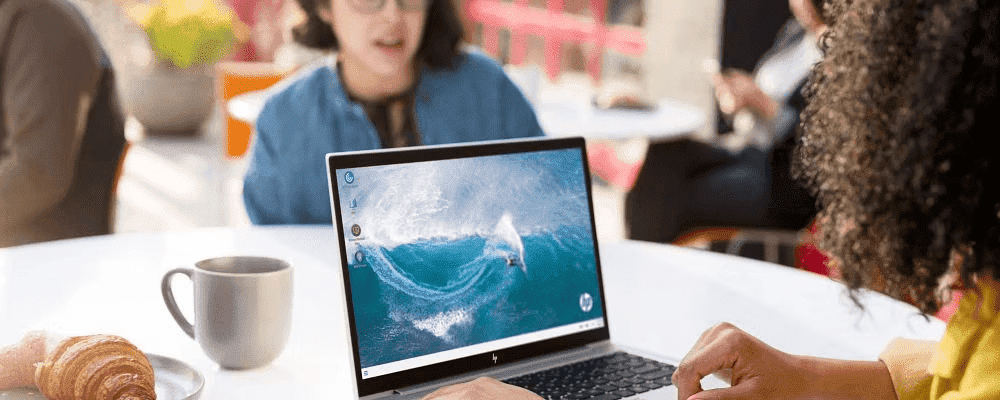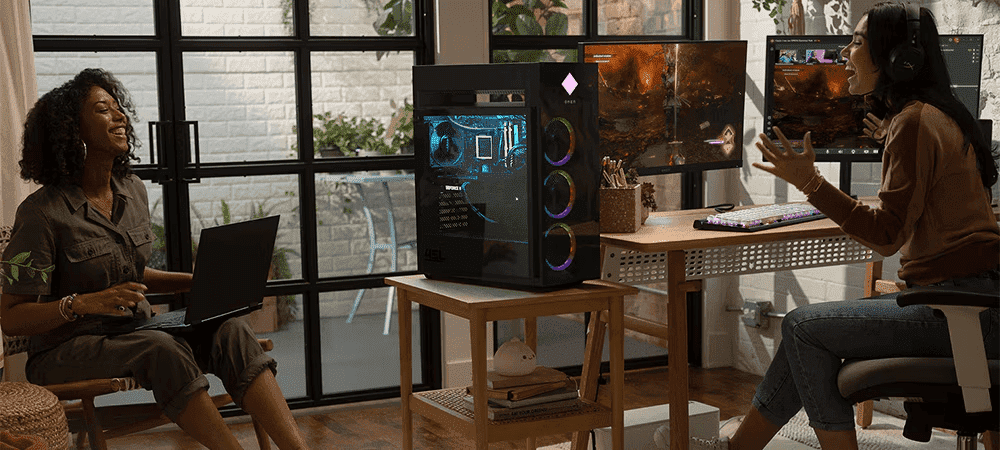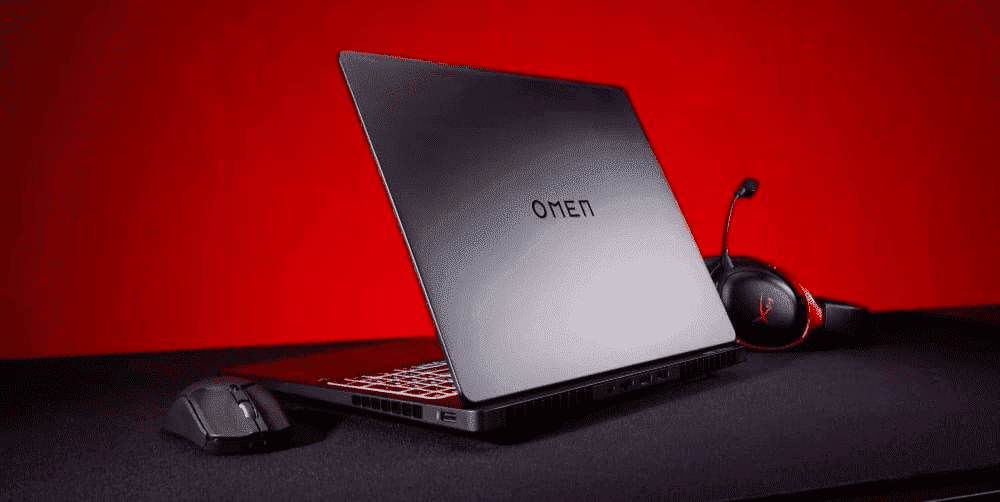Thank you for visiting the AUSTRALIA HP Store
-
Contact Us
CONTACT USCall us
- Sales
- 1300 540 516
- Technical support
- 13 23 47
Exc. public holidays
Chat with us- Our specialist are here to help
- Live Product Demo
- Sales
- 61288061500 (WhatsApp)
-

- Post Sales
- 61288061700(WhatsApp)
Exc. public holidays
Live product demo
Submit feedback We value your opinion! - My Account
How Gen Z is Reshaping the World Through Technology


Generation Z, commonly known as Gen Z, is the first true generation of digital natives. While this global trend is unmistakable, Australian Gen Z’ers have shown particularly strong adoption of technology in education and workplace settings. They’ve grown up using laptops, smartphones, social media, and enjoying on-demand access to information, developing a unique relationship with digital tools as a result of being raised in a tech-saturated world.
From Sydney to Perth, these young Australians are driving innovation and setting trends that impact industries worldwide, especially the laptop market. Their demand for seamless and connected experiences extends to performance and design, influencing innovation across the country at an unprecedented pace.
Born between 1997 and 2012, this generation makes up about 30% of the global population—including a significant portion of Australia’s youth—and will soon become the largest consumer demographic. This article explores how this tech-savvy generation is harnessing technology, particularly laptops, to transform multiple facets of life and what it means for Australian businesses, educators, and parents.
Digital Natives in Education
Online Learning Preferences
Gen Z prides itself on being digital natives, a distinction that impacts their approach to education. Australian students in this generation prefer interactive online learning using laptops that offer flexibility, great performance, and mobility. Traditional methods of education such as lectures and rote memorization are often at odds with their desire for engaging and personalised learning experiences.
Research shows that 59% of Gen Z prefers to learn by doing, with 55% preferring to use YouTube as an educational resource. This hands-on, visual learning style, often facilitated through screens of at least 13-inch display, is revolutionising educational approaches across Australian universities and schools.
Educational Technology Adoption: Laptops for High School & University
Laptops have become essential computers for Gen Z students across Australia. They look for devices that offer versatility, excellent performance, and budget-friendly options. The best student laptops today feature powerful processors, long battery life, and lightweight designs which are ideal for both high school and university environments. HP has developed educational-focused products, such as the HP ENVY x360 2-in-1 laptop to cater to these needs while also emphasising sustainability and design.
The average Gen Z student in Australia now spends over 7 hours daily on their laptops for educational purposes, making reliable technology an absolute necessity rather than a luxury. With Australia’s vast geography, many regional students rely heavily on technology to connect with educational institutions in metropolitan areas.
Digital Study Tools and Laptop Usage Habits
Technology profoundly influences Gen Z’s study habits. Australian students use various digital tools and apps on their laptops to enhance their studies. Additionally, collaborative platforms are reshaping the conventional approach to group projects and learning by enabling real-time teamwork, regardless of location—a particularly valuable asset in a country as geographically expansive as Australia.
Popular digital study tools among Australian Gen Z students include:
-
Notion for note-taking and organisation
-
Quizlet for flashcards and study materials
-
Grammarly for writing assistance
-
Zotero for research management
-
Discord for study groups and collaboration
Impact on Traditional Education
The traditional educational system in Australia is being forced to adapt as Gen Z continues to embrace technology. We’ve observed a shift towards hybrid models incorporating digital tools. Australian schools and universities are integrating large-scale technology initiatives, aiming for a more tech-centric approach to pedagogy. This shift is about more than just tools; educators are encouraged to foster a culture of innovation, collaboration, and creativity that embraces the technology Gen Z relies on.
Educational institutions that fail to adapt to these technological preferences risk becoming irrelevant to a generation that expects digital integration in every aspect of their learning journey. Many Australian universities have already transformed their campuses with technology hubs and flexible learning spaces to accommodate these new learning styles.
Reshaping the Workplace Through Laptops
Gen Z’s entry into the Australian workforce is disrupting traditional workplace norms. They prioritise flexibility, digital collaboration, and purpose-driven careers, forcing employers to adapt to a new way of working.
Remote Work Expectations and Laptop Integration
Growing up in a connected world has made Australian Gen Z comfortable with remote and hybrid work models, facilitated by laptops. They prefer jobs that allow them to work from anywhere while maintaining a work-life balance. The spread of NBN and improved internet connectivity across Australia has further enabled this shift. To satisfy these needs, employers need to invest in laptop-powered productivity applications, digital communication tools, and virtual collaboration platforms.
A recent LinkedIn survey found that 69% of Gen Z workers would reject job offers that didn’t include remote work options, highlighting how deeply this preference is embedded in their professional expectations. This shift in mindset among Gen Z’ers impacts the traditional workplace setup further, with many Australian companies now redesigning their offices to support a hybrid workforce.
Digital Collaboration Tools
To meet the expectations of a tech-savvy workforce and create a more dynamic and efficient work environment, Australian companies should adopt tools like Slack, Zoom, Microsoft Teams, and Asana. These platforms are favoured by Gen Z professionals for their ability to enable seamless communication and project management. The integration of reliable business laptops like the HP EliteBook 840 G11 business laptop in offices is increasingly popular due to their performance and reliability.
Gen Z employees report 43% higher productivity when using collaborative digital tools compared to traditional email-based communication, demonstrating the tangible benefits of adapting to their technological preferences. This is particularly relevant in Australia’s increasingly competitive business landscape.
Tech-Driven Career Choices with Laptops
Generation Z’s career interests lean heavily towards technology, entrepreneurship, creative digital fields, and laptop innovation. Many Australian Gen Z’ers aspire to become software engineers, data analysts, digital marketers, and content creators, reflecting their affinity for tech-driven roles. With Australia’s burgeoning tech sector, particularly in cities like Melbourne and Sydney, these preferences align well with economic opportunities. As AI and automation reshape industries, Gen Z remains at the forefront of adapting to these changes.
Gen Z Prioritises a Laptop-enabled Healthy Work-life Balance
Gen Z prioritises a healthy work-life balance and expects employers to support mental health and flexible schedules. Mental health awareness is more crucial now, with young Gen Z individuals leading the charge. This holistic approach contrasts with previous generations’ desire for a strict work-life separation. Digital wellness apps and mental health resources are now essential workplace tools.
Unlike millennials who sought work-life balance, Gen Z prefers work-life integration, with 73% stating they want their personal values to align with their employer’s mission. This trend is particularly noticeable in Australia, where outdoor lifestyle and wellbeing are highly valued alongside career success.
Social Connection and Communication Through Laptops


Social Media Usage Patterns
Gen Z’s communication and relationships are shaped by social media platforms and facilitated by laptops. These platforms not only offer a space for self-expression but also influence how they perceive the world around them.
The average Australian Gen Z user maintains active profiles on at least five different social platforms, spending approximately 3-4 hours daily engaging with social media content. Regular streaming of content, often educational, reinforces visual learning for Gen Z. Australian-specific platforms and content creators have gained significant followings among this demographic.
Communication Preferences
They gravitate toward short content accessed on both mobile devices and laptops like the HP Pavilion Plus 14 inch laptop that capture their attention quickly. This preference is redefining how Australian brands market their products and communicate with consumers, emphasising the need for an authentic and relatable voice.
The declining average attention span (now estimated at just 8 seconds) has led Gen Z to favour platforms like TikTok, where content is delivered in bite-sized, visually engaging formats. Australian TikTok creators have seen explosive growth as brands recognise this shift in content consumption.
Digital Community Building
Gen Z relies on digital platforms to establish communities centered around shared interests and to advocate for social change. This differs from previous generations who primarily used platforms for connecting with friends. In Australia, these digital communities often form around unique local interests, from surfing to indigenous rights activism.
Over 65% of Gen Z report joining online communities based on specific interests or causes, creating powerful digital ecosystems around niche topics and social movements. Australian youth-led movements on climate change and social justice have gained particular momentum through these digital channels.
Content Creation Trends
Content creation is a vital aspect of Gen Z’s online presence. Their interest is often piqued by laptop brands that provide robust editor tools. Many are not just consumers of content but are actively participating in creating and sharing their own. This trend has led to the rise of influencers and a shift toward user-generated content as an effective marketing strategy in the Australian market.
Unlike previous generations, 74% of Gen Z consider themselves content creators rather than just consumers, with one in four actively monetising their digital content in some form. Australia’s creative industries have benefited from this shift, with many young creators building successful careers entirely online.
The expectations that Gen Z has for seamless laptop experiences are shaping corporate strategies, digital policies, and product design throughout Australia and beyond.
Device Usage of Laptops
Gen Z’s digital lifestyle necessitates the use of smartphones, tablets, and highly portable laptops. HP’s range of products, including lightweight laptops and 2-in-1 convertible laptops like the HP Pavilion x360 14 inch 2-in-1 laptop, meet the demand of Australian Gen Z for versatile devices that cater to their school, work, and leisure activities.
Multi-device ownership is the norm, with the average Gen Z individual actively using 5 connected devices daily, seamlessly transitioning between them for different tasks and contexts. They seek brands that seamlessly blend their media habits with effective device use. In Australia’s highly connected urban centers, this multi-device approach has become standard.
App Preferences
Gen Z favors laptops with cloud-based applications, AI-driven recommendations, and personalised digital experiences. From AI-powered playlists on Spotify to custom content feeds on TikTok, their digital preferences push companies to develop data-driven, user-centric innovations.
Laptops that don’t provide personalised experiences see lower retention rates among Gen Z users compared to those offering AI-customised interfaces and content. Australian tech companies are increasingly focusing on localised experiences that cater to regional preferences and culture.
Digital Wellness Awareness
Gen Z actively manages their digital consumption to encourage mindfulness and combat the negative effects of excessive screen time. They achieve digital mindfulness by utilising tools like Headspace and monitoring apps now available for laptops. Australian schools have begun incorporating digital wellness into their curriculum to support healthy technology habits.
Contrary to popular belief, 67% of Gen Z report being conscious of their screen time and actively implementing digital detox periods, showing a sophisticated relationship with technology. Many young Australians cite the country’s stunning natural environment as motivation for regular digital breaks.
Privacy Concerns
Gen Z, who are the digital natives, are cautious when it comes to data privacy and prefer platforms that offer end-to-end encryption, minimal data tracking, and personalised privacy settings. Companies that are upfront about their data policies are more likely to earn Gen Z’s trust. Unique marketing strategies are likely needed to cater to the Gen Z audience in Australia’s competitive market.
Despite growing up in the age of social sharing, 82% of Gen Z regularly review privacy settings on their laptops and are more likely to use VPNs. With Australia’s evolving privacy legislation, this generation is particularly attuned to their digital rights.
Driving Innovation
Influence on Product Development
Gen Z’s preferences and habits influence product development across industries in Australia and globally. Companies that listen to generational feedback, apply it to laptop design and functionality, often find themselves leading in innovation.
Major tech companies now employ Gen Z advisory boards and research teams for ensuring laptops resonate with this youth demographic. Several Australian universities have established innovation labs specifically to study and respond to these emerging preferences.
Sustainability Through Technology
Gen Z values sustainability and eco-brands with eco-friendly laptop practices are gaining attention from young Australian consumers. As a result, companies are now focusing on environmentally friendly materials and processes to meet the demands of a generation determined to make a positive impact. Australia’s unique environmental challenges make this a particularly resonant issue locally.
Over 75% of Gen Z consumers are willing to pay more for sustainable tech products, forcing manufacturers to adopt eco-friendly practices throughout their supply chains.
Future Tech Trends
As Gen Z continues to mature, their preferences will inevitably shape future trends in technology across Australia. Expect to see an increased focus on personalisation, sustainability, and ethical practices across laptops as industries adapt.
Emerging technologies being embraced by Australian Gen Z include:
-
Decentralised finance and cryptocurrency
-
Augmented and virtual reality for both work and entertainment
-
AI-powered personal assistants and predictive tools
-
Low-code/no-code development platforms
-
Digital ownership through NFTs and blockchain technology
Australia’s strong position in Asia-Pacific markets makes it an ideal testing ground for many of these emerging technologies.
Economic Impact
Gen Z’s economic influence is significant and growing in Australia. Their increasing purchasing power drives the demand for innovative products that reflect their values. Businesses understanding and catering to student laptop expectations are poised for success in the evolving marketplace.
By 2025, Gen Z will account for approximately 27% of global consumer spending, wielding over $33 trillion in purchasing power worldwide. In Australia, their economic impact is expected to transform retail, technology, and service industries.
Implications for Society
Gen Z is leading the charge towards a more interconnected, inclusive, and conscientious world. The future of Australia will undoubtedly be shaped by their focus on technology, sustainability, and social justice.
Providing students with the best laptops and other technology is essential to empowering their educational journey. Businesses must embrace these changes to remain relevant and forge authentic connections with their consumers. Implementing laptops with SSDs in educational settings improves performance and sustainability, both key values for Australian Gen Z.
Providing Australian students with the best laptops and other technology that enables learning and collaboration is essential to empowering and engaging with this energetic generation. Such efforts engage Gen Z students digitally while ensuring mental wellbeing is factored in.
Organisations failing to recognise the fundamental values driving Gen Z’s laptop preferences risk becoming obsolete in Australia’s competitive market.
How Brands Can Connect with Gen Z in Australia
Understanding Gen Z’s laptop preferences is only half the battle; authentic connections require a strategy tailored to the Australian market:
-
Lead with purpose: Demonstrate how your technology contributes to social good in the Australian context
-
Embrace transparency: Be open about your data practices and business operations
-
Prioritise visual communication: Use video, AR, and interactive elements in marketing
-
Create two-way dialogues: Involve Gen Z in product development through feedback channels
-
Meet them on their platforms: Establish presence on TikTok, Discord, and other Gen Z-favoured spaces
-
Support their digital entrepreneurship: Partner with Australian Gen Z creators and innovators
-
Acknowledge local context: Recognise Australia’s unique cultural, environmental, and social landscape
Media consumption is heavily influenced by their peers, with YouTube being a strong platform for reaching Australian Gen Z.
TIP
Want your tech brand to resonate with Australian Gen Z? Inclusion of SSD options makes student laptops ultimately more reliable for Gen Z. Focus less on specifications and features, and more on how your products enable their values, creativity, and communities in an Australian context.
Conclusion
Gen Z’s impact on technology and society will only grow stronger in Australia’s future. Their digital preferences will continue to transform education, the workplace, and social interactions, requiring a flexible response from educators, employers, and brands.
Gen Z’s innovative spirit and influence promise a bright future for Australia’s technological landscape. Embracing change is key to moving forward in a laptop-centric era.
As we look ahead, one thing is certain: Gen Z isn’t just adapting to technology—they’re actively reshaping it to create a more connected, efficient, and purpose-driven world. The question for Australian businesses isn’t whether they should adapt to Gen Z preferences, but how quickly they can do so to remain relevant in the Gen Z era.
For more information on the latest technology suited for Australian Gen Z students and professionals, visit the HP laptop family page and explore our range of solutions designed for the next generation.
- Sales
- 1300 540 516
- Technical support
- 13 23 47
Exc. public holidays
- Our specialist are here to help
- Live Product Demo
- Sales
- 61288061500 (WhatsApp)
-

- Post Sales
- 61288061700(WhatsApp)
Exc. public holidays
Live product demo









